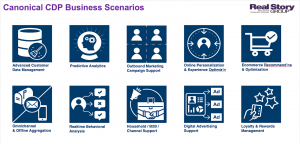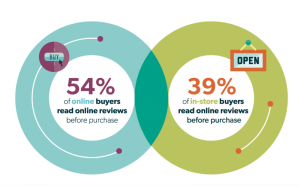Obtaining state business licenses can be confusing. You might need to apply for more than three licenses just so you can legally open shop. Missing a step or forgetting something can result in a lot of trouble later on. This guide will simplify the process by teaching you the essentials of business licenses and giving you state-specific sources to help you get set up.
Table of Contents
- What is a business license?
- The purpose of a state business license
- Who needs to get a state business license?
- Where should you go to get your business license?
- Types of business licenses
- Documents required to get a business license
- The steps to get a business license
- The price of a business license
- State business license requirements by state
- Learn more about running a successful business
What is a business license?
The term “business license” is very broad. It can cover a range of different licenses, and it all depends on your location, industry, and the kind of business you run.
The term refers to a document that’s issued by an agency to grant you permission to operate in a specific geographic region — typically one that the agency oversees and governs. For example, a county government agency will give you a business license that lets you operate within the county.
It could be as local as the city that you’re planning on operating in. Most businesses need to get a number of licenses — a business license at the state, county, and even city levels.
Depending on the product you’re selling, you might even need a specific seller’s license. This license also falls under the umbrella term of “business license”.
The purpose of a state business license
The bottom line is that these licenses keep people safe. Regulation prevents unscrupulous or incompetent people from opening stores, which in turn protects the general public from scams and unsafe business practices.
It ensures that businesses are operating legally, that they’re professional, and that everyone involved is legitimate.
Who needs to get a state business license?
In some cases, you might not need a state business license. For example, selling t-shirts after a concert doesn’t require a state business license.
However, opening a restaurant does. The distinction is clear when you look at the potential problems with either business: a low-quality T-shirt won’t harm its buyer, but a poorly prepared meal can result in food poisoning.
The higher the risk is for the customer, the more licenses the business needs. For example, tattoo parlors and construction companies need a number of different licenses. These businesses are also very dangerous if they’re unregulated.
One important small business tip is to make sure you’re operating legally and checking all the boxes before continuing. This means getting a business license if it’s required.
For especially high-risk businesses like nuclear waste transportation or running an airline, there are specific agencies that oversee the licensing process. These agencies understand the industries better than consumers and can point out risks.
Where should you go to get your business license?
The bottom of this guide includes a list of sites detailing the application requirements for each state. The links will tell you what to do and how to apply for a license.
In the meantime, there are some additional resources that you can use. These places will have more information for you and be able to better assist you on a per-business basis.
Your local SBDC
A Small Business Development Center (SBDC) is all about you and your business. They have locations across America that you can quickly scroll through. For many people, this is the best place to get started.
The folks at your town or city clerk’s office will be able to answer more specific questions and point you in the right direction. Additionally, a lot of businesses need to get a local license, and the SBDC is exactly where you go to do that.
The SBDC offers city-level permits and business licenses. They also have a list of licenses that any given operation needs. Starting here may mean saving yourself some headaches down the road.
CityApplications.com
CityApplications.com is another useful source for licensing information. There, you can search for specific information by state. You won’t be able to put in specific information about your business, but the site does a good job of giving you a state-level list of requirements.
You’ll still need to consult with someone else to get information that pertains to your industry and specific business.
You’ll find a range of websites, phone numbers, and contact information to help you during this process. They even get into specifics about some of the documents and paperwork that you’ll need.
Small Business Administration
SBA.gov is a great resource when it comes to getting federal business licenses. Their site is particularly useful because it breaks down licensing requirements by industry. Simply click on the link that corresponds to your industry. This link will take you to a site that gives you even more information and may provide a form to file digitally for your license.
At the bottom of their page, there’s a link to follow that will connect you with local counselors who can walk you through the process. Overall, this is a great resource to keep handy and share with any friends who are also starting their own businesses.
Small Business Advice
Unrelated to the SBA we just talked about, SBA.com is built for small business owners. They provide a number of articles and guides to better answer licensing and general business-related questions. They also have contacts within the company that can work with you to answer your questions if needed.
Types of business licenses
Different areas and industries require different business licenses. As I mentioned previously, you might even need to get a separate business license from your state, county, and city. If your industry is regulated by a certain commission, association, or board, you might need to get a certification from them, too.
Depending on your industry, you might need an additional certificate from a federal agency. This might be the case if your industry falls into any of the following categories:
- Television or radio broadcasting
- Fish and wildlife
- Agriculture
- Nuclear energy
- Transportation and logistics
- Aviation
- Firearms, ammunition, and explosives
- Mining and drilling
- Commercial fisheries
- Alcoholic beverages
- Maritime transportation
Getting the wrong license might mean that you can’t legally operate. If you have any questions, you can ask your state’s license department directly and they’ll clear things up. You can also double-check with them about what documents are required.
Documents required to get a business license
If you have the right documents on hand prior to applying for a license, the process becomes a lot easier. It doesn’t normally take a lot of time, but you’ll find yourself running back and forth getting your documents in order if you’re not prepared.
EIN
A lot of states will ask for your Employer Identification Number (EIN). This is the equivalent of a social security number for your business, and you can easily get one online at no cost. Once you have your EIN number, you’ll be officially registered with the IRS.
If you’ve already opened a business bank account, you likely already have an EIN, which will be associated with the account.
Basic business questions
Your state’s office might ask you some basic questions about your business. It could entail the type of operation you’ll be running, how much money you expect to make, your location, contact info, and what products you’ll be selling.
It’s worth mentioning that this isn’t a formal quiz — there are no right or wrong answers. This is just the department’s way of gauging how prepared you are to run your business and how much thought you’ve put into it.
Proof of tax status
You might need to provide a sales tax permit or tax return to prove your tax status. This type of document is required less commonly than others on this list.
Proof of operating capital
If you’re applying for certain industries like construction or architecture, you might be required to show how much operating capital you have. This refers to the amount of liquid cash or business loans you have. This is especially true for industries that have a large upfront cost associated with them.
The steps to get a business license
Each state has its own business license application process. That said, the overall process is fairly similar from state to state.
1. Find out what type of license you need
If you look within your state, city, and specific county, you’ll see that business regulation can change. You’ll need to follow the links in the following section to find out what type of business license you need for your operation.
If you’re not positive, you’ll have to reach out to your area’s business license office.
2. Apply
On each of these sites, there’s an area to apply for a business license. You’ll need to make sure you attach the right documents.
In some cases, you’ll have to pay a filing or processing fee to finalize your application. From there, the state office will approve or deny your request.
3. Wait
Now comes the fun part: waiting. There’s no blanket rule to determine how long your application process will take. It depends on a variety of factors, including department size, efficiency, the number of applicants ahead of you, and the individual review process.
4. Renew or reapply
If you get approved, you’ll receive a physical copy of your license, which will allow you to start operating legally in your area. If your application is denied, you’ll need to remedy any issues and reapply.
Every license has an expiration date. Before your license expires, you’ll have to renew it so you can continue doing business.
With licensing dealt with, you can start focusing on other parts of your business, like networking and setting up the perfect shop.
The price of a business license
The price of a business license varies by location and industry. The associated fees are usually related to filing and processing your application, plus the cost of issuing and shipping the license itself.
A new license can cost anywhere from $ 50 up to hundreds of dollars. Renewing a license comes with another set of fees that are separate from your original application fee. Renewal fees vary but are typically within the same range as the original application fee.
If you’re late submitting your license renewal application, you’ll be charged an additional late fee.
Make sure you budget and track this business expense so you’re not surprised.
Example costs
If you apply for a business license in Alaska, you’ll be charged $ 50 for a one or two-year license, and another $ 50 to renew. In Nevada, the same license costs $ 500 a year plus filing fees.
Getting a business license for a 50-child daycare center in Illinois costs $ 165 and in Idaho, the same license is $ 135.
State business license requirements by state
Every state has a specific procedure that you have to follow in order to get a business license. In addition, each state has its own unique website that walks you through the process.
In general, it’s as simple as going to the right site and following the directions posted. Most of the sites do a good job of explaining the process and any requirements unique to the state in question.
Links to business license resources (by state):
Alabama
Alaska
Arizona
Arkansas
California
Colorado
Connecticut
Delaware
Florida
Georgia
Hawaii
Idaho
Illinois
Indiana
Iowa
Kansas
Kentucky
Louisiana
Maine
Maryland
Massachusetts
Michigan
Minnesota
Mississippi
Missouri
Montana
Nebraska
Nevada
New Hampshire
New Jersey
New Mexico
New York
North Carolina
North Dakota
Ohio
Oklahoma
Oregon
Pennsylvania
Rhode Island
South Carolina
South Dakota
Tennessee
Texas
Utah
Vermont
Virginia
Washington
West Virginia
Wisconsin
Wyoming
Learn more about running a successful business
Getting your state business license is a big deal. After going through the process, you can officially open your doors and get to work. As you continue onward, you’ll run into more hurdles and obstacles that you need help with.
Business & Finance Articles on Business 2 Community
(60)
Report Post





